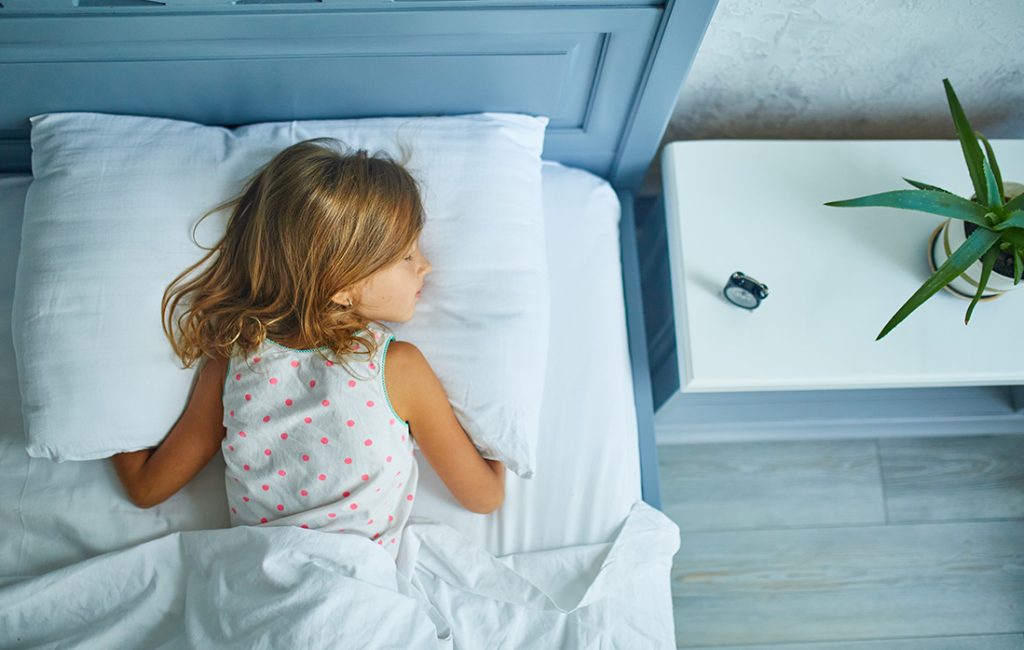 A class action lawsuit claims that a popular children’s melatonin supplement contains twice the amount of melatonin as advertised.
A class action lawsuit claims that a popular children’s melatonin supplement contains twice the amount of melatonin as advertised.
The suit filed by Dovel & Luner in California against Zarbee’s says that their California-based plaintiff, a mother from Salinas, Calif., had her product tested, along with others, by a university mass-spectrometry laboratory. The true amount of melatonin in her bottle was 216 percent of the claimed amount, the lawsuit alleges.
“No reasonable consumer wants to buy and ingest a supplement containing a random, undisclosed amount of melatonin. No reasonable consumer wants a product that even has a material risk of such problems. This is particularly true for melatonin supplements aimed at children,” it continued.
The California mother purchased a bottle of Zarbee’s Children’s Sleep with Melatonin gummies for her 8-year-old child this June, according to the suit. The gummies were meant to contain 1 milligram of melatonin a piece.
Questions in the Past
This isn’t the first time that melatonin supplements have been called out for containing more (or less) than they advertise on the label.
A 2017 study in Journal of Clinical Sleep Medicine quantified melatonin and serotonin in 31 supplements. Melatonin ranged from below 83% of what was advertised on the label up to 478 percent above the advertised content. Different lots of the same product had amounts that varied by as much as 465 percent.
A ConsumerLab analysis showed that 22 of the 23 products tested contained the labeled amount.
“The products tested by ConsumerLab include leading brands, whereas the 2017 study consisted of unidentified products sold in Canada,” Andrea Wong, PhD, and Luke Huber, ND, both with the Council for Responsible Nutrition, told Sleepopolis.
RELATED: All the Conflicting Information About Melatonin and Kids
The Government’s Role
The U.S. Food and Drug Administration (FDA) has authority over supplements, but not the same way as with drugs, noted Kelly Johnson-Arbor, MD, a medical toxicologist and co-medical director at the National Capital Poison Center in Washington, DC. Dietary supplements are regulated as a category of food.
The FDA lets companies manage evaluation and labeling of products prior to marketing; the government can take action against any wrongdoing after it reaches the market.
“The FDA does not have oversight of the labeling, proof of safety, or effectiveness of dietary supplement products in the United States. Rather, dietary supplement manufacturers are responsible for the labeling, content, quality control, and safety of their products,” Johnson-Arbor told Sleepopolis.
“Because dietary supplements are not highly regulated by the FDA, there have been many reports of adulterated or contaminated supplements, or supplements that contain different doses of ingredients than what is listed on the product label,” she said.
Finding Out What’s In Your Melatonin
Third-party organizations and companies such as NSF International, ConsumerLab.com, UL, and U.S. Pharmacopeia (USP) offer insight into what exactly is in supplements. NSF, USP, Informed Choice, Banned Substances Control Group offer certifications. (This ConsumerReports.com chart explains it well.)
“There is no foolproof way to ensure the safety or quality of dietary supplements, but there are certain safeguards that people can take to ensure that they are purchasing supplements of high quality,” Johnson-Arbor said, encouraging people to look for a USP label.
While melatonin use in children is currently in question, the lawsuit is a reminder to check the melatonin product you use—or the one your child takes—to ensure you’re getting the amount on the label.
Editor’s Note: Sleepopolis reached out to Zarbee’s for a comment.


























